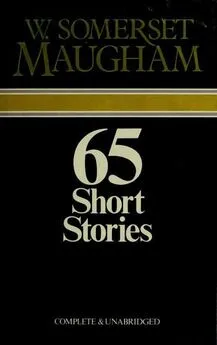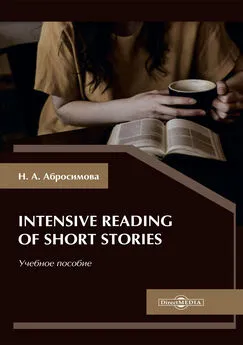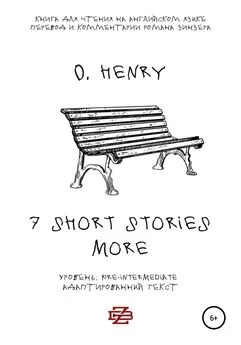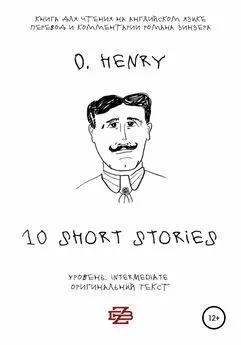Somerset Maugham - Sixty-Five Short Stories
- Название:Sixty-Five Short Stories
- Автор:
- Жанр:
- Издательство:неизвестно
- Год:неизвестен
- ISBN:нет данных
- Рейтинг:
- Избранное:Добавить в избранное
-
Отзывы:
-
Ваша оценка:
Somerset Maugham - Sixty-Five Short Stories краткое содержание
Sixty-Five Short Stories - читать онлайн бесплатно полную версию (весь текст целиком)
Интервал:
Закладка:
'Knobby who? Not Knobby Clarke?'
There was a three-line paragraph in a column of general intelligence:
Messrs Star, Mosley and Co. have received a cable informing them that Mr Harold Clarke of Timbang Batu died suddenly on his way home and was buried at sea.
A man came up and took the paper from the speaker's hand, and incredulously read the note for himself. Another peered over his shoulder. Such as happened to be reading the paper turned to the page in question and read the three indifferent lines.
'By George,' cried one.
'I say, what tough luck,' said another.
'He was as fit as a fiddle when he left here.'
A shiver of dismay pierced those hearty, jovial, careless men, and each one for a moment remembered that he too was mortal. Other members came in and as they entered, braced by the thought of the six o'clock drink, and eager to meet their friends, they were met by the grim tidings.
'I say, have you heard? Poor Knobby Clarke's dead.'
'No? I say, how awful!'
'Rotten luck, isn't it?'
'Rotten.'
'Damned good sort.'
'One of the best.'
'It gave me quite a turn when I saw it in the paper just by chance.'
'I don't wonder.'
One man with the paper in his hand went into the billiard-room to break the news. They were playing off the handicap for the Prince of Wales's Cup. That august personage had presented it to the club on the occasion of his visit to Timbang Belud. Tom Saffary was playing against a man called Douglas, and the Resident, who had been beaten in the previous round, was seated with about a dozen others watching the game. The marker was monotonously calling out the score. The newcomer waited for Saffary to finish his break and then he called out to him.
'I say, Tom, Knobby's dead.'
'Knobby? It's not true.'
The other handed him the paper. Three or four gathered round to read with him.
'Good God!'
There was a moment's awed silence. The paper was passed from hand to hand. It was odd that none seemed willing to believe till he saw it for himself in black and white.
'Oh, I am sorry.'
'I say, it's awful for his wife,' said Tom Saffary. 'She was going to have a baby. My poor missus'll be upset.'
'Why, it's only a fortnight since he left here.'
'He was all right then.'
'In the pink.'
Saffary, his fat red face sagging a little, went over to a table and, seizing his glass, drank deeply.
'Look here, Tom,' said his opponent, 'would you like to call the game off?'
'Can't very well do that.' Saffary's eye sought the score board and he saw that he was ahead. 'No, let's finish. Then I'll go home and break it to Violet.'
Douglas had his shot and made fourteen. Tom Saffary missed an easy in-off, but left nothing. Douglas played again, but did not score and again Saffary missed a shot that ordinarily he could have been sure of. He frowned a little. He knew his friends had betted on him pretty heavily and he did not like the idea of failing them. Douglas made twenty-two. Saffary emptied his glass and by an effort of will that was quite patent to the sympathetic onlookers settled down to concentrate on the game. He made a break of eighteen and when he just failed to do a long Jenny they gave him a round of applause. He was sure of himself now and began to score quickly. Douglas was playing well too, and the match grew exciting to watch. The few minutes during which Saffary's attention wandered had allowed his opponent to catch up with him, and now it was anybody's game.
'Spot two hundred and thirty-five,' called the Malay, in his queer clipped English. 'Plain two hundred and twenty-eight. Spot to play.'
Douglas made eight, and then Saffary, who was plain, drew up to two hundred and forty. He left his opponent a double balk. Douglas hit neither ball, and so gave Saffary another point.
'Spot two hundred and forty-three,' called the marker. 'Plain two hundred and forty-one. Plain to play.'
Saffary played three beautiful shots off the red and finished the game.
'A popular victory,' the bystanders cried.
'Congratulations, old man,' said Douglas.
'Boy,' called Saffary, 'ask these gentlemen what they'll have. Poor old-Knobby.'
He sighed heavily. The drinks were brought and Saffary signed the chit. Then he said he'd be getting along. Two others had already begun to play.
'Sporting of him to go on like that,' said someone when the door was closed on Saffary.
'Yes, it shows grit.'
'For a while I thought his game had gone all to pieces.'
'He pulled himself together in grand style. He knew there were a lot of bets on him. He didn't want to let his backers down.'
'Of course it's a shock, a thing like that.'
'They were great pals. I wonder what he died of.'
'Good shot, sir.'
George Moon, remembering this scene, thought it strange that Tom Saffary, who on hearing of his friend's death had shown such self-control, should now apparently take it so hard. It might be that just as in the war a man when hit often did not know it till some time afterwards, Saffary had not realized how great a blow to him Harold Clarke's death was till he had had time to think it over. It seemed to him, however, more probable that Saffary, left to himself, would have carried on as usual, seeking sympathy for his loss in the company of his fellows, but that his wife's conventional sense of propriety had insisted that it would be bad form to go to a party when the grief they were suffering from made it only decent for them to eschew for a little festive gatherings. Violet Saffary was a nice little woman, three or four years younger than her husband; not very pretty, but pleasant to look at and always becomingly dressed; amiable, ladylike, and unassuming. In the days when he had been on friendly terms with the Saffarys the Resident had from time to time dined with them. He had found her agreeable, but not very amusing. They had never talked but of commonplace things. Of late he had seen little of her. When they chanced to meet she always gave him a friendly smile, and on occasion he said one or two civil words to her. But it was only by an effort of memory that he distinguished her from half a dozen of the other ladies in the community whom his official position brought him in contact with.
Saffary had presumably said what he had come to say and the Resident wondered why he did not get up and go. He sat heaped up in his chair oddly, so that it gave you the feeling that his skeleton had ceased to support him and his considerable mass of flesh was falling in on him. He looked dully at the desk that separated him from the Resident. He sighed deeply.
'You must try not to take it too hard, Saffary,' said George Moon. 'You know how uncertain life is in the East. One has to resign oneself to losing people one's fond of.'
Saffary's eyes slowly moved from the desk, and he fixed them on George Moon's. They stared unwinking. George Moon liked people to look him in the eyes. Perhaps he felt that when he thus held their vision he held them in his power. Presently two tears formed themselves in Saffary's blue eyes and slowly ran down his cheeks. He had a strangely puzzled look. Something had frightened him. Was it death? No. Something that he thought worse. He looked cowed. His mien was cringing so that he made you think of a dog unjustly beaten.
'It's not that,' he faltered. 'I could have borne that.'
George Moon did not answer. He held that big, powerful man with his cold level gaze and waited. He was pleasantly conscious of his absolute indifference. Saffary gave a harassed glance at the papers on the desk.
'I'm afraid I'm taking up too much of your time.'
'No, I have nothing to do at the moment.'
Saffary looked out of the window. A little shudder passed between his shoulders. He seemed to hesitate.
'I wonder if I might ask your advice,' he said at last.
'Of course,' said the Resident, with the shadow of a smile, 'that's one of the things I'm here for.'
'It's a purely private matter.'
'You may be quite sure that I shan't betray any confidence you place in me.'
'No, I know you wouldn't do that, but it's rather an awkward thing to speak about, and I shouldn't feel very comfortable meeting you afterwards. But you're going away tomorrow, and that makes it easier, if you understand what I mean.'
'Quite.'
Saffary began to speak, in a low voice, sulkily, as though he were ashamed, and he spoke with the awkwardness of a man unused to words. He went back and said the same thing over again. He got mixed up. He started a long, elaborate sentence and then broke off abruptly because he did not know how to finish it. George Moon listened in silence, his face a mask, smoking, and he only took his eyes off Saffary's face to reach for another cigarette from the box in front of him and light it from the stub of that which he was just finishing. And while he listened he saw, as it were a background, the monotonous round of the planter's life. It was like an accompaniment of muted strings that threw into sharper relief the calculated dissonances of an unexpected melody.
With rubber at so low a price every economy had to be exercised and Tom Saffary, notwithstanding the size of the estate, had to do work which in better times he had had an assistant for. He rose before dawn and went down to the lines where the coolies were assembled. When there was just enough light to see he read out the names, ticking them off according to the answers, and assigned the various squads to their work. Some tapped, some weeded, and others tended the ditches. Saffary went back to his solid breakfast, lit his pipe, and sallied forth again to inspect the coolies' quarters. Children were playing and babies sprawling here and there. On the sidewalks Tamil women cooked their rice. Their black skins shone with oil. They were draped about in dull red cotton and wore gold ornaments in their hair. There were handsome creatures among them, upright of carriage, with delicate features and small, exquisite hands; but Saffary looked upon them only with distaste. He set out on his rounds. On his well-grown estate the trees planted in rows gave one a charming feeling of the prim forest of a German fairy-tale. The ground was thick with dead leaves. He was accompanied by a Tamil overseer, his long black hair done in a chignon, barefooted, in sarong and baju, with a showy ring on his finger. Saffary walked hard, jumping the ditches when he came to them, and soon he dripped with sweat. He examined the trees to see that they were properly tapped, and when he came across a coolie at work looked at the shavings and if they were too thick swore at him and docked him half a day's pay. When a tree was not to be tapped any more he told the overseer to take away the cup and the wire that held it to the trunk. The weeders worked in gangs.
At noon Saffary returned to the bungalow and had a drink of beer which, because there was no ice, was hike-warm. He stripped off the khaki shorts, the flannel shirt, the heavy boots and stockings in which he had been walking, and shaved and bathed. He lunched in a sarong and baju. He lay off for half an hour, and then went down to his office and worked till five; he had tea and went to the club. About eight he started back for the bungalow, dined, and half an hour after went to bed.
But last night he went home immediately he had finished his match. Violet had not accompanied him that day. When the Clarkes were there they had met at the club every afternoon, but now they had gone home she came less often. She said there was no one there who much amused her and she had heard everything everyone had to say till she was fed to the teeth. She did not play bridge and it was dull for her to wait about while he played. She told Tom he need not mind leaving her alone. She had plenty of things to do in the house.
Читать дальшеИнтервал:
Закладка:










